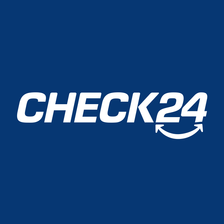Apart from the paperwork that this entails, this has consequences for projects. “People we want to help then have to wait longer for our help, while we help in emergency situations,” says Van Vliet.
For example, the organization needs the money to provide people with money in an emergency or to buy goods locally. “We do that locally as much as possible, also to stimulate the economy here.”
The organization was even forced to look for another bank. According to the organization’s original bank, the work was very important, but asked ZOA to find another bank.
Sanctions lists and legislation
The Dutch Banking Association recognizes the stories. “But banks also have to comply with a lot of rules,” says Yvonne Willemsen, head of security affairs at the NVB. If they don’t, they will receive “big fat fines”, Willemsen emphasizes.
Banks must rule out that money unintentionally ends up with terrorists or persons on sanctions lists. “In some countries it is difficult to exclude that, because people who are on the blacklist are very intertwined with society there,” says Willemsen.
One year of paperwork
The problems are greatest for smaller and new aid organizations. “Some improvements have been made in recent years for larger aid organizations,” says Lia van Broekhoven of the Human Security Collective, where she helps aid organizations with banking problems.
Together with women’s rights organization WO=MEN, Van Broekhoven conducted research into the problem in 2019, which was already an issue at the time. Little has improved for small aid organizations since then.
Inemarie Dekker, who has set up the aid organization Impact Foundation, can have a say in this. “I’ve been busy with all the paperwork for a year and I haven’t been able to arrange everything yet,” she says. “For example, we are not yet able to collect donations automatically.”
Some larger organizations are also affected. A well-known Dutch aid organization with hundreds of employees says it is experiencing a lot of inconvenience. And ZOA is not a small organization either, with a thousand employees worldwide.
Other aid organizations such as the Refugee Foundation and PAX are less affected by the problems themselves, but they work together with smaller aid organizations, for example, that do encounter problems.
Syria
Banks are, among other things, bound by sanctions lists, which prohibit many payment transactions to countries such as Syria. Emergency aid is excluded from this, but banks must then know whether it really concerns emergency aid.
In addition, banks must look for unusual transactions that may indicate terrorist financing. And before someone closes a bank account, a bank has to assess whether someone intends to do any harm.
In addition, payments to Syria, for example, do not go directly. A Dutch bank can use the services of another bank to send the payment to the Middle East, after which a bank forwards the payment there again. “And that route can be different every time,” says Chris Lukkien, ZOA’s director. Each of those banks is afraid of fines, and can therefore ask additional questions.
“We have become a bit more adept at it now,” says Lukkien. “For example, we sponsored a project with water tanks, but of course you should avoid the word ‘tank’.”
More careful
Sometimes aid organizations send people with envelopes of money across the border, if a payment does not arrive again. A Dutch aid organization has also considered this. The director, who for security reasons does not want to be linked to that plan: “But that is of course not the intention.”
–


